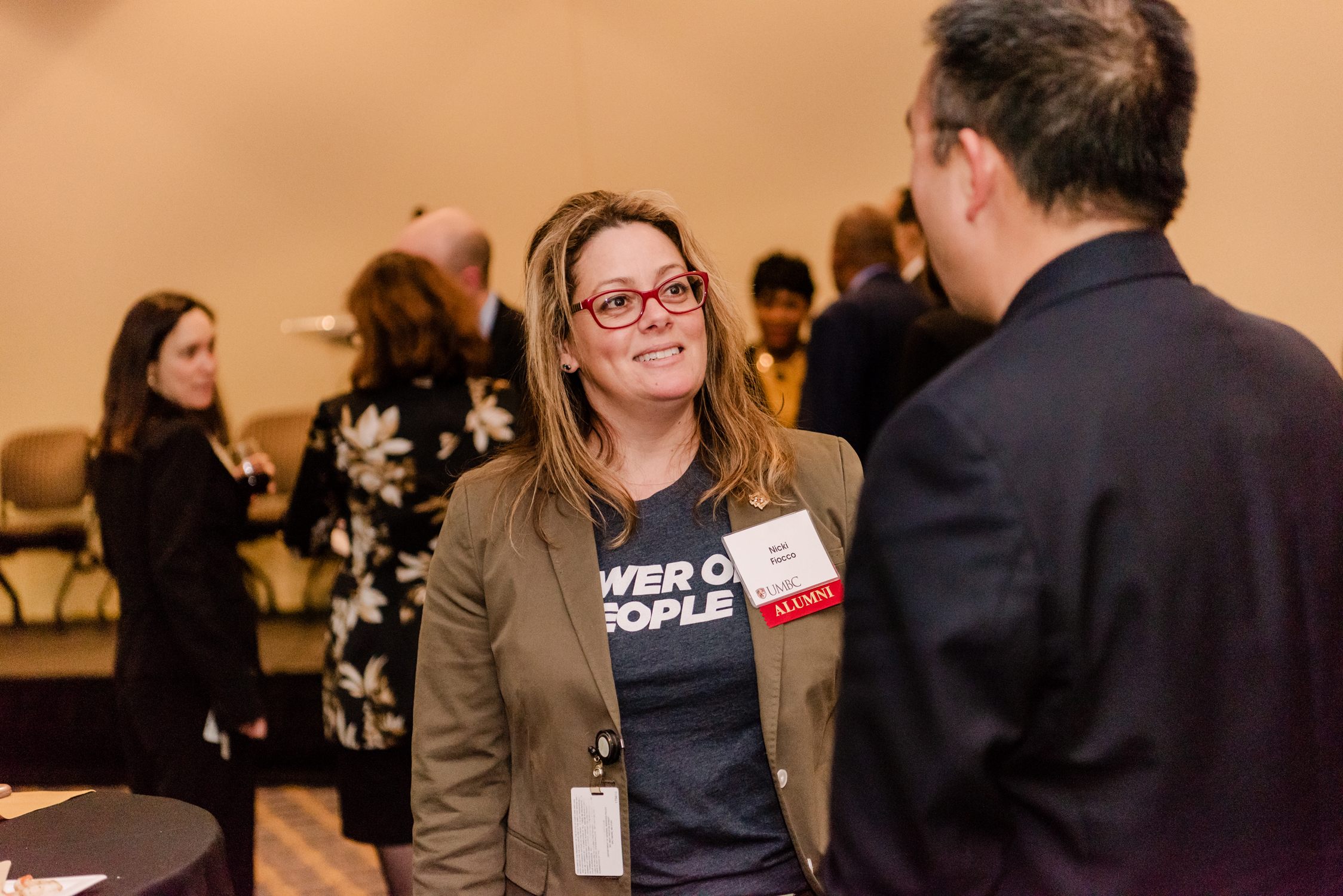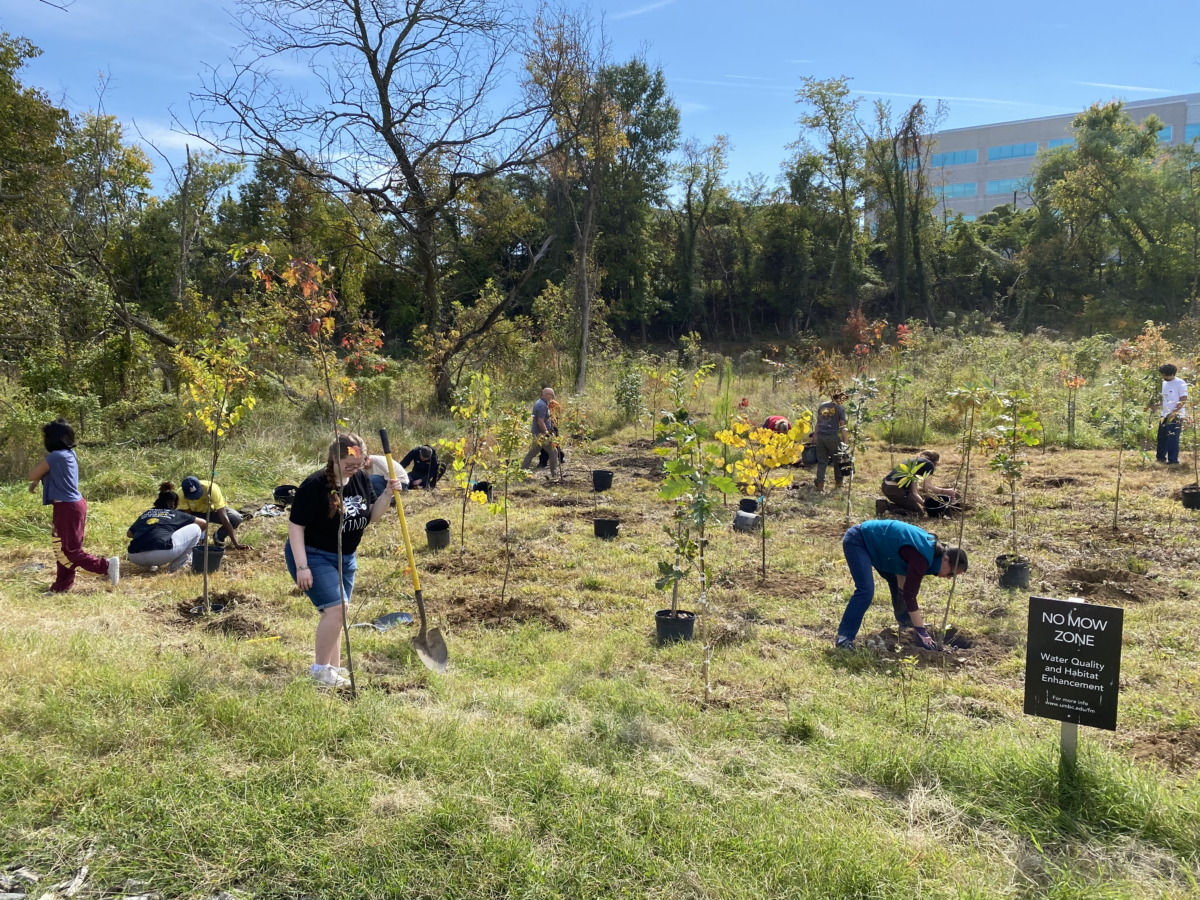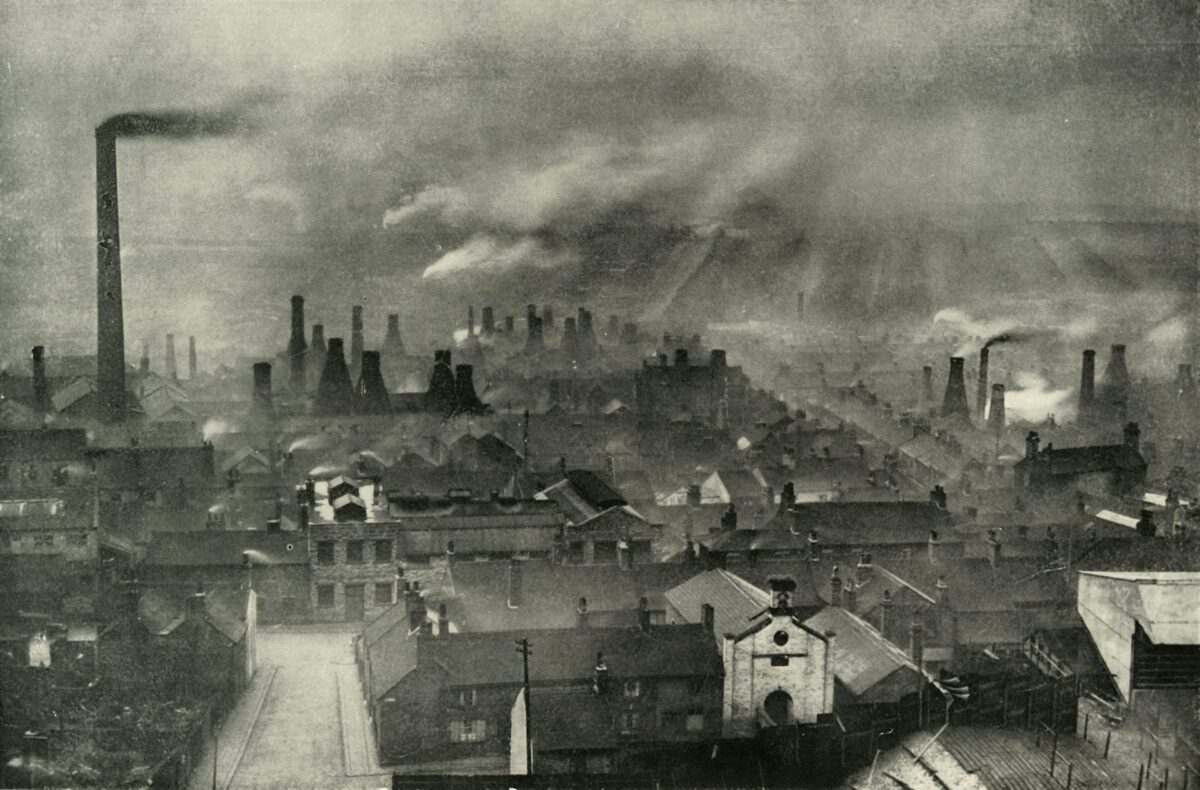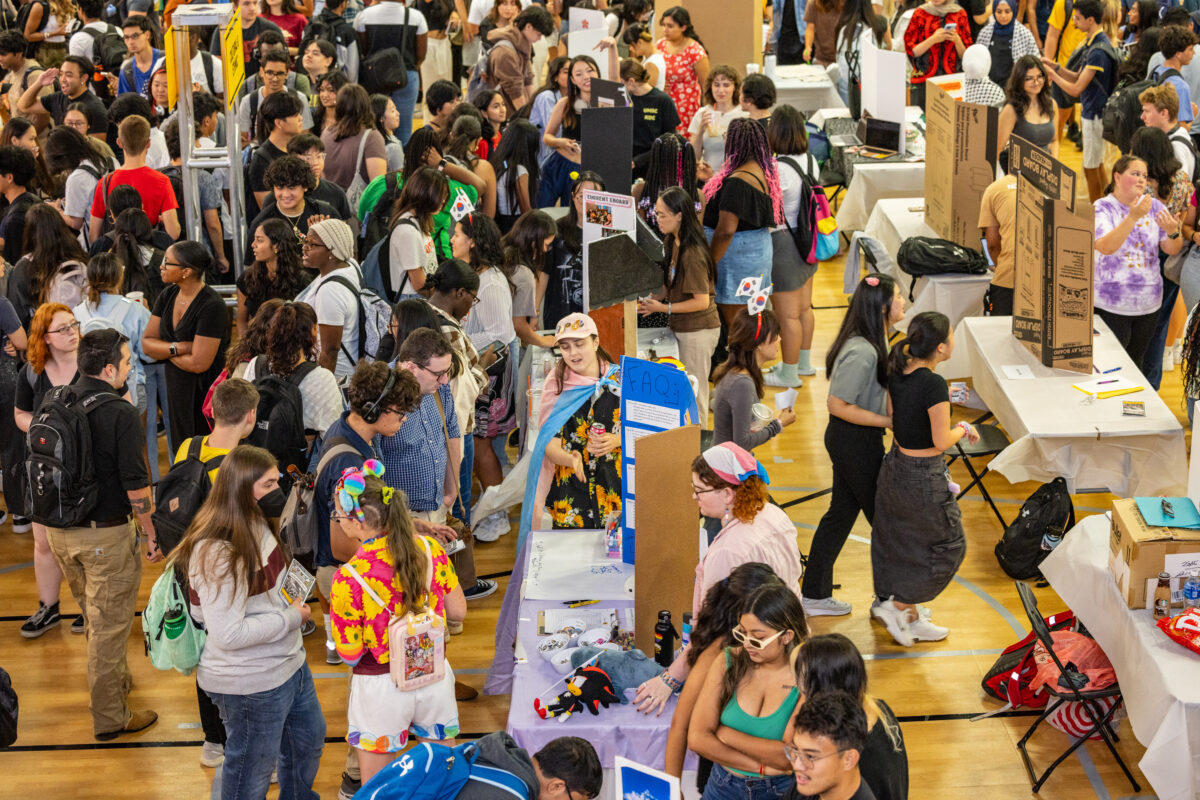If volunteer coordination is “all about finding the right person to do the right job,” as Nicki Fiocco ’11, geography and environmental systems, explains, then the Hogan Administration found the exact right person to direct the Governor’s Office of Service and Volunteerism. Fiocco—who started in that role in December 2019—shares how her UMBC grit laid the foundation for her career in public service and how Marylanders can assist one another during, and after, the COVID-19 pandemic.
UMBC Magazine: You’ve worked in volunteer coordination roles since you’ve graduated. How did you get started with that career?
Nicki Fiocco: Volunteer coordination is all about finding the right person to do the right job. You could say I started by coordinating parent volunteers while coaching my kids in soccer. Then I got plugged into a regional service ecosystem, after graduating UMBC in 2011 through an internship with Smithsonian Environmental Research Center (SERC). Coordinating student volunteers for SERC, I witnessed firsthand their resilient spirit (in every imaginable kind of weather!) and was inspired to pursue a service career path.
My AmeriCorps service year with Volunteer Maryland paved the next step. Launching environmental projects allowed me to learn about volunteer program management on a larger scale. I’ve been hooked ever since! AmeriCorps has been a door-opener for my career. It led directly to my Program Director role with Volunteer Maryland, an AmeriCorps program, and my current leadership role in a state service commission for the Hogan Administration. I’m honored to engage with dedicated volunteer networks throughout Maryland.
UMBC Magazine: Your work in the Governor’s office is relatively new— what’s it been like to face such a large crisis like COVID-19 early on?
Nicki Fiocco: A decade of service-based career experiences has informed and shaped how I’m approaching the challenges we’re facing right now. No matter how “prepared” we may be on paper, in any crisis there’s no substitute for the daily workout I’ve had—listening closely, learning how to respond, and adapting with limited resources at hand.

Fortunately, being part of a strong service community also means I’m not facing these challenges alone. I’m grateful to be backed by the leadership of the Hogan Administration, and supported by over 600 boots-on-the-ground Maryland AmeriCorps members, program directors, and partners of the Governor’s Office on Service and Volunteerism (GOSV).
We’re getting things done by drawing on the deep experience of a service network that’s always had its finger on the pulse of critical community needs. I’m humbled and energized by what I’m seeing everyday in response to this crisis: a state-wide landscape of service and compassion meeting critical needs.
It’s easy to lead when things are going well. The true test is how well you function through a crisis. We are all capable of meaningful, impactful service. Marylanders have an opportunity to come out of this crisis stronger and more united through acts of service and volunteerism.
UMBC Magazine: How has your role supported efforts in fighting COVID-19?
Nicki Fiocco: Governor Hogan prioritizes getting things done, through a united response to COVID-19. We’re all being called upon to pivot where necessary, and we’re empowered to do so. For example, in addition to my regular duties, I was activated to serve in the Maryland Emergency Management Agency (MEMA), which means I’ve been working on connecting Marylanders to relevant and geographically accessible opportunities to serve their neighbors.
So far, Maryland AmeriCorps members are helping by checking on seniors through the Maryland Department of Aging; establishing support networks; addressing access to education and the digital divide; and by distributing 20,000 pounds of fresh produce and prepared meals, 5,000 bottles of hand sanitizer and bars of soap, 1,000 rolls of toilet paper, and 200 handmade face masks.
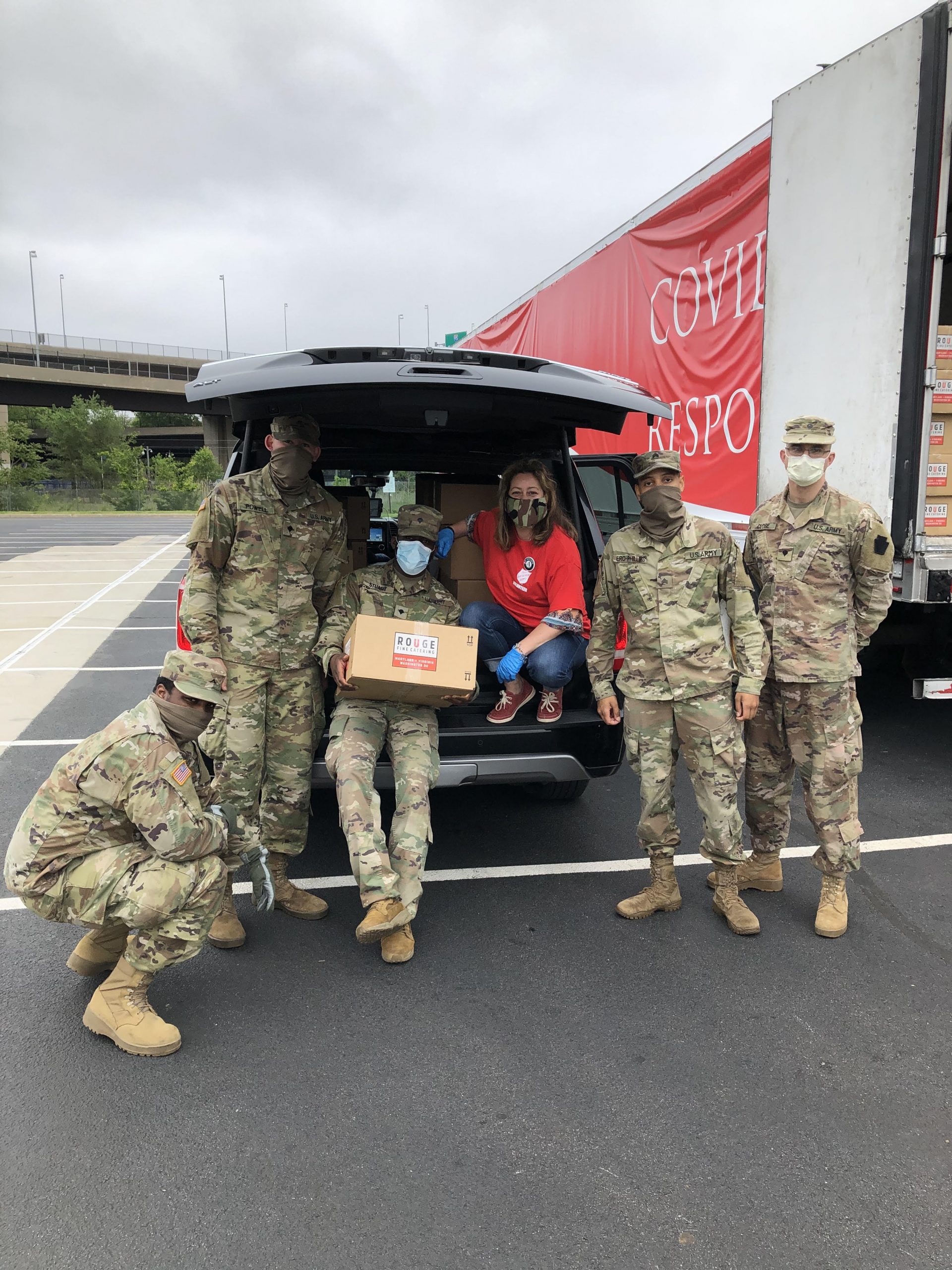
For the Maryland Unites initiative, my team partnered with the Governor’s Office of Community Initiatives to launch Marylanders Serving Marylanders, a webpage for sharing coronavirus resources. GOSV’s Acting Deputy Director Kerry Ose and I are leading a collaborative effort capturing best practices for the Governor’s “Maryland Strong: Roadmap to Recovery.” Our non-profit working group listens to and elevates the voices of a diverse mix of 30 large and small non-profit organizations, with the common goal of strengthening our state’s response, recovery, and re-building after COVID-19.
UMBC Magazine: What have been some of the biggest challenges / biggest rewards (of your job)?
Nicki Fiocco: My personal philosophy is to approach challenges as opportunities and focus on removing any obstacles for the people around me. Being tapped into so many organizations and agencies, I see the pendulum swing between great needs and tremendous generosity. During this pandemic, a constant challenge has been connecting the right dots in a thoughtful and timely fashion. I bear this responsibility seriously. I’m approaching my role as a platform for solving problems.
UMBC Magazine: How does your geography and environmental systems (GES) major play a role in what you do today?
Nicki Fiocco: My GES major at UMBC really laid the framework for my thinking about ecosystems, and the unexpected relationships woven throughout. In our service ecosystem, I apply those lessons to being mindful when we’re planning and accommodating for regional, local, and cultural needs.
In the same way that my GES studies taught me knowledge of local flora (when you want to install a rain garden or increase wildflowers along a park trail), it’s also internalized the importance of socio-economic boundaries that could impact volunteer recruitment, local community buy-in, and long-term program sustainability.
UMBC Magazine: So many of us feel so useless right now—how would you encourage Marylanders outside of public service to volunteer/help right now?
Nicki Fiocco: Marylanders who are staying home and practicing physical distancing are already serving by protecting our public health and safety. It’s a tremendous sacrifice, and I want to thank Marylanders on behalf of the Hogan Administration for doing so.
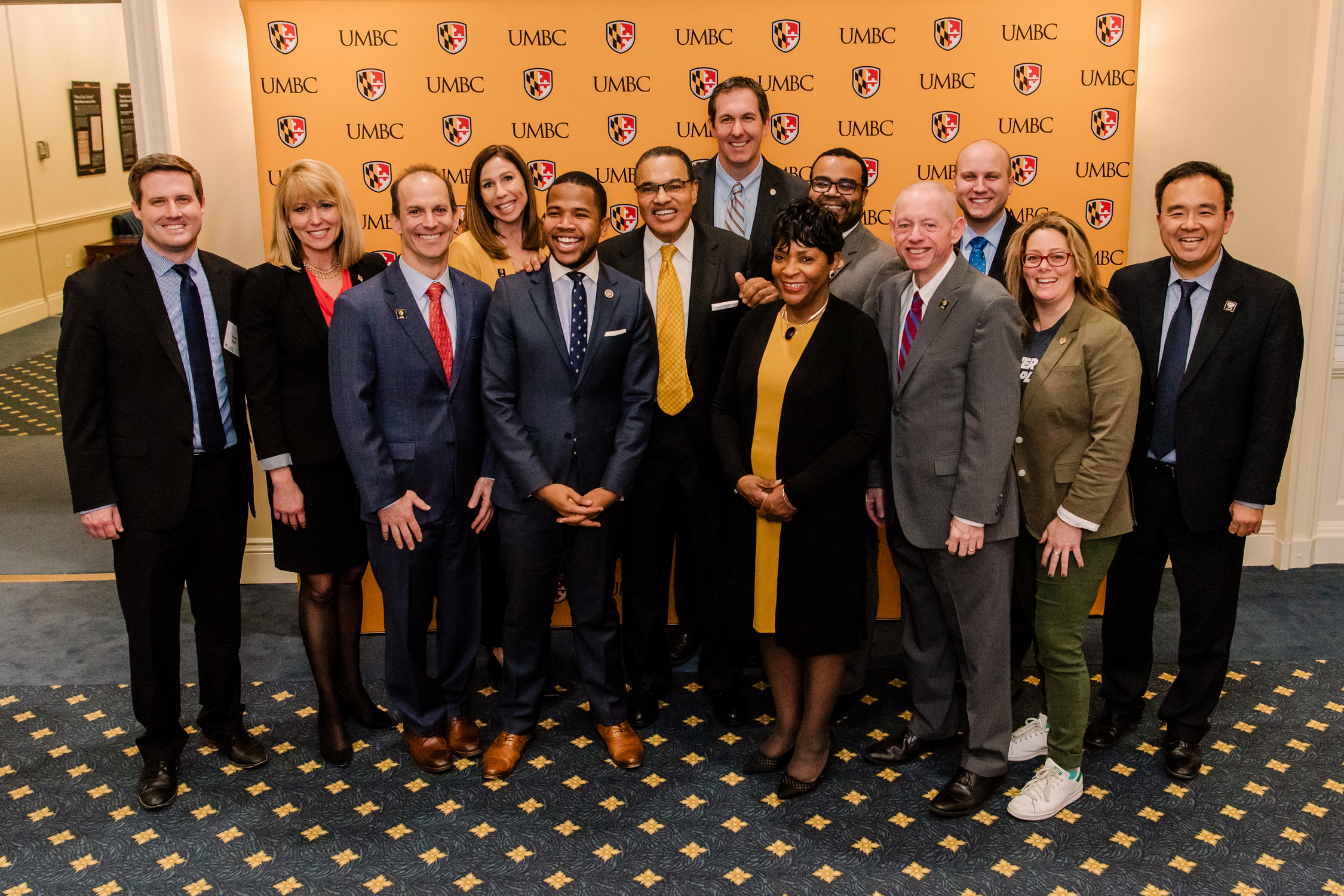
For those who want to help more, the number one priority of GOSV is safety. We have on-site essential volunteer opportunities on Maryland Unites (Medical Reserve Corps, Maryland Food Bank, Red Cross), and virtual opportunities on Marylanders Serving Marylanders. Volunteerism can also look like sharing state and community resources to friends in your network who may not be aware, and checking in with them regularly.
UMBC Magazine: What are some UMBC lessons that have stuck with you over time?
Nicki Fiocco: GRIT. Sticking with things, doing what is right, and not letting anything throw you off course is my favorite value I gained at UMBC. I make it a point to participate in the UMBC alumni receptions in Annapolis, and I enjoy hearing President Hrabowski speak about grit!
The implications in public service—the grit to serve while putting others first—returns tenfold in growth and development. Grit is a muscle you build and take to any career or field.
UMBC Magazine: Does a specific professor’s advice come to mind, or has a particular class stayed with you?
Nicki Fiocco: My UMBC experience is something I continue to lean on. The lessons (and contacts) I’m able to draw from and share with others have been invaluable. A true mentor for me is Sandy Parker. He was my advisor, (and department chair for geography and environmental studies at the time). Funny thing is, our daughters are the same age—so we not only had ongoing conversations about school and my path forward—we were constantly talking about parenting.
I remember the semester before my graduation, Dr. Parker told me I needed to apply for graduation to finish my degree. At the time, I was resistant. There was nothing I wanted more than to stay forever at UMBC and just continue to learn. I was afraid I didn’t have what it would take to be successful; I wasn’t even sure what I would even do after school. Dr. Parker encouraged and assured me that I would find my way. Ultimately, getting my degree was about achieving a major personal milestone—I’m really glad I did it for me!
UMBC Magazine: Is there anything we haven’t asked yet, that you’d still like to share with alumni?
Nicki Fiocco: “The obstacle is the way.” Meaning, that when things are getting tough, you need to keep going through, not around. Working through the big, bad, ugly thing you may be afraid of is exactly what will make you stronger, wiser, and better. It’s not always about the big things you do, it’s about the things you do consistently. Your consistent actions provide the momentum; then suddenly—you are living your purpose.
*****
Header image: Fiocco at an Annapolis reception for alumni in Maryland legislature, February 2020. Photo by Marlayna Demond ’11.
Tags: COVIDresearch, GES, UMBCTogether

